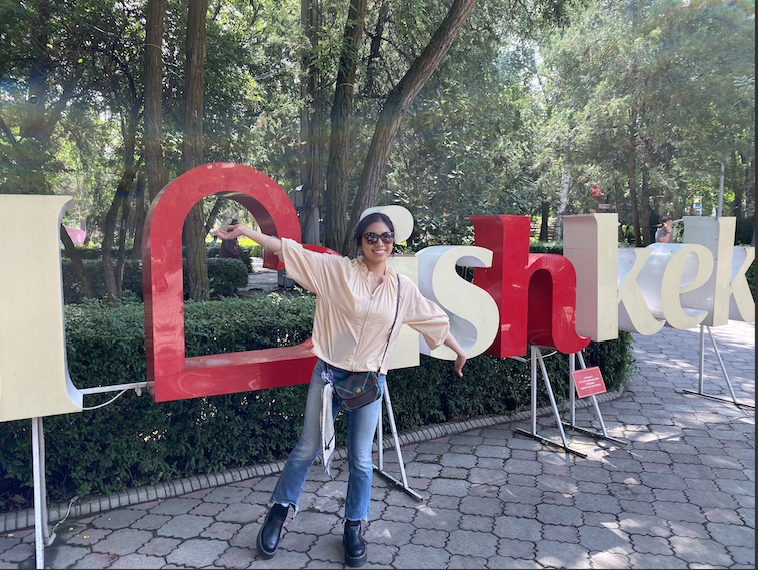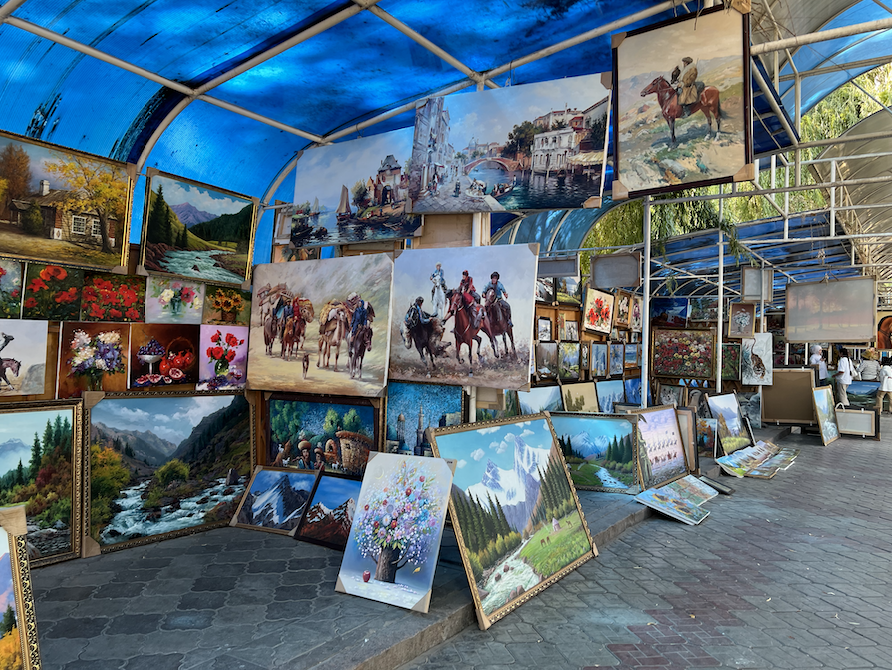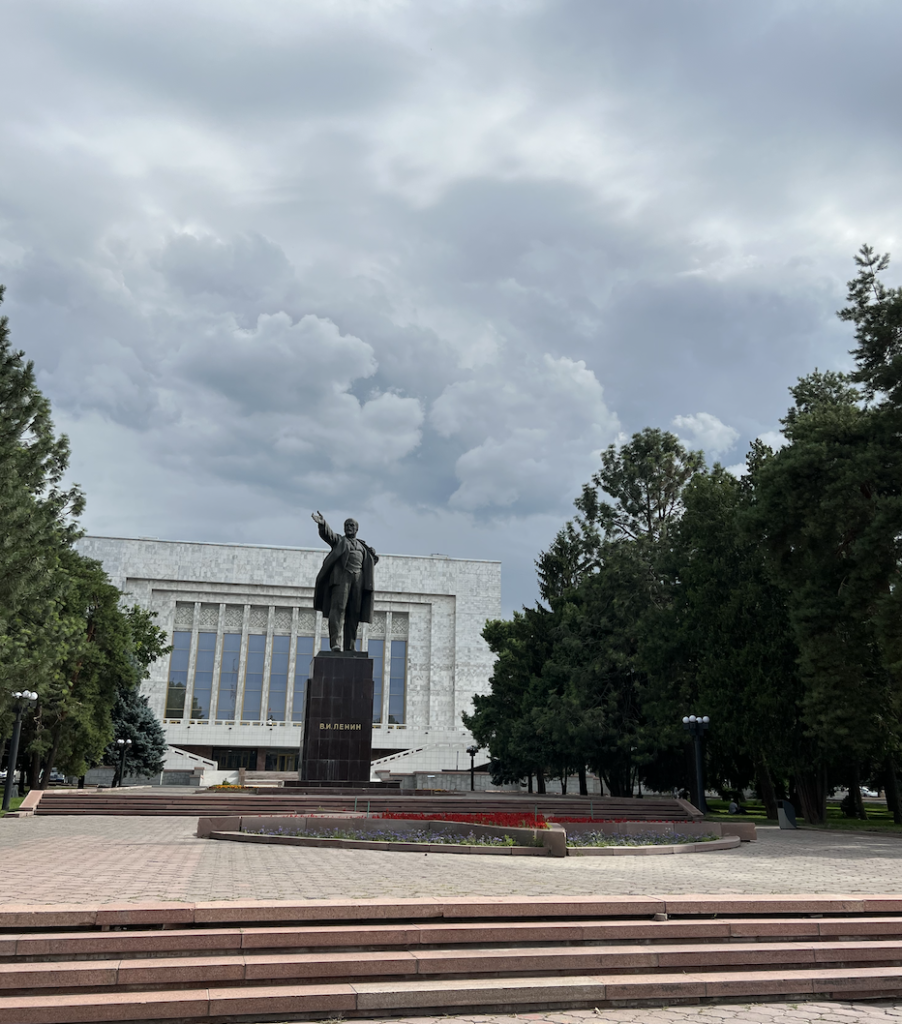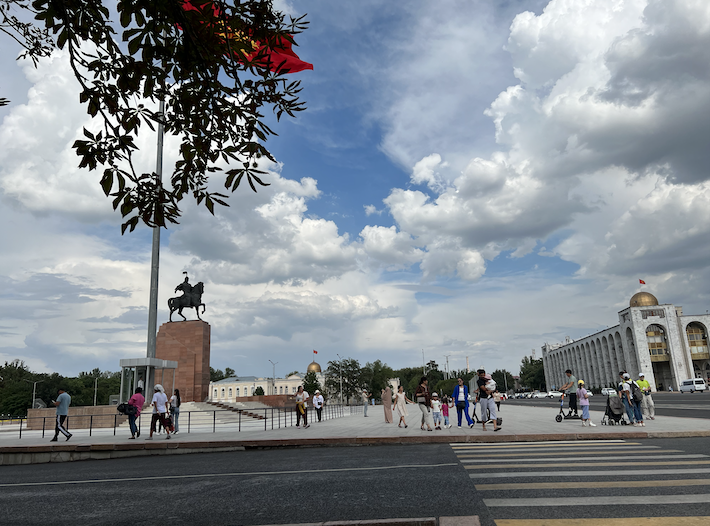
On our first day in Bishkek, two local Kyrgyz students took us on a tour of Bishkek. We started with historic buildings, monuments, and the biggest park in Bishkek. The two guides talked about life in Kyrgyzstan along the way. When Алтима mentioned that a house in her neighborhood was robbed during the past week by a fake cleaning service, the other guide gasped and asked “Прикинь?” She went on to explain that “Прикинь” was an informal slang term used by younger students only among friends. It meant “Can you imagine?”. Pronounced (prikínʹ). Because of how fun it is to say, I found myself using this term quite often by the end of my stay.

Жиза is related to the word жизнь, which means life. Жиза has a very specific meaning and I noticed that it was usually only used within friends of young adults. It is used to signify that you relate to someone else’s situation or experience. However, it cannot be used to say that you have the same object, plans, ideas as someone. It can only be used to signify that a very similar situation also happened to you. So when a friend says that his favorite ice cream flavor is chocolate, you must say я думаю так же or I think the same! But if a friend says that her parents brought home a painting from the outdoor art gallery, you can respond Жиза!

During our tour, we visited an old statue of Lenin that was relocated but not torn down. The guides explained that because Lenin was referred to as Papa Lenin in media and propaganda during the Soviet era, locals are continue to have some subconscious fondness for the statue.

The Ala Too Square looks modern and welcoming. Although Bishkek is a city of one million people, the square reminds me of a park I can find in my own hometown. There are families with children all around playing in the fountains and enjoying the lovely greenery.